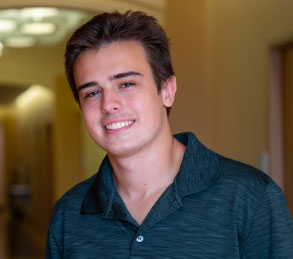B.A or B.S. in Music
Do you love performing and sharing your musical talents with others? Do you want to pursue your passion and embark on a career in the music industry? The B.A. or B.S. in our Music Program allows for students to gain a well-rounded music theory, literature, history, and performance foundation while studying concentrations in instrumental or vocal music. As a music student, you will learn how to excel in your concentration, gain real performance experience, and prepare yourself for graduate school or any music-related career.
Course Requirements
Students pursuing this major must complete the requirements linked below.
NEW Concentrations
Students majoring in Music also have the option of earning a concentration in Coding for Musicians and Mathematicians or a concentration in Popular Music
Concentration in Coding for Musicians and Mathematicians
This new concentration for both Music and Math majors will develop coding skills that can open up more job opportunities in various technical areas like sound engineering, composing, producing, electronics engineering, and more. The concentration also allows Math Majors who have an interest in music to increase their knowledge in music and learn how creative coding skills can be utilized in digital music composition and sound manipulation.
Course Details for Coding for Musicians and Mathematicians
_________________________________________________________________________
Concentrate in Popular Music (Music Majors Only)
This concentration is designed for young musicians who have no formal training in music yet perform popular music including Rock, Hip-Hop, Rap, Country, Gospel, and Folk.
Some students may not have the training to read music but play “by ear” such as Rock guitarists and bass players, Rap singers, and others who learn music aurally. The courses in the B.A./B.S. music degree program and courses specific to the concentration will give students greater depth of study and greater knowledge and skill development in their chosen genre.
Requirements
All incoming music majors are required to:
- audition
- be tested in ear training and sight singing
- sight read
- be interviewed by members of the Music Department.
Admittance will be carefully judged based upon the following elements:
- TEACHER RECOMMENDATION — From a teacher, coach, conductor, director, or mentor in music. If there is no music teacher, then a recommendation from the general school teacher, counselor or principal – to determine skill level, intent, career goals, work ethic, and discipline, is acceptable.
- PREPARATION FOR THE DISCIPLINE — The department reviews courses, lessons, and experience through a preview of materials submitted by each candidate.
- AUDITION — All students must be prepared to sight read, sight sing, and take a short ear training test. If a student is auditioning in instrumental music, he or she must play three music selections: two classical of contrasting styles; one selection of their choice, including jazz, musical, pop, and rock. If a student is auditioning in vocal music, he or she must sing three music selections: two classical of contrasting styles; one selection of their choice, including jazz, musical, pop, and rock. Music auditions for acceptance and music scholarship auditions are held at 1 p.m. on most Saturdays other than holiday weekends. Students wanting to audition should contact Cathy Jansen, Fine Arts Administration Assistant at 336-272-7102, ext. 5242, to schedule an audition. Students needing an accompanist will be provided one.
- INTERVIEW — A one-on-one conversation with judges determines the candidate’s interests, intent, career goals, understanding of the major, and its requirements, rehearsals, and performances.
Why Choose This Degree?
A B.A. or B.S. in Music opens your possibilities for a flexible career and allows you to:
- Grow your passion for music and gain confidence in performing
- Strengthen your musical ability to express emotion and connection through performance
- Build upon your knowledge and appreciation of music through music theory, literature, history, and performance practice
- Gain awareness of music and the arts in modern and historical contexts, focusing on the creative mind and the importance of thinking creatively
- Be well prepared for graduate studies in the diverse field of music, whether that be performance, music therapy, music theory, music history, music theory/composition, sacred music, electronic music, or another subject
Why Earn it at Greensboro College?
Because we are a smaller, more tight-knit school at Greensboro College, earning a B.A. or B.S. in Music means you’ll have unique opportunities to:
- Gain more performance experience in operas, shows, and musicals than larger, more competitive schools
- Perform in many different instrumental and choral ensembles, large and small, classical, popular, and jazz, as well as in musical theatre and operatic main stage performances
- Become an expert by working with professors and music instructors who currently work as professional musicians outside of Greensboro College, such as in local and state symphonies, jazz clubs, jazz orchestras, and choral organizations
- Distinguish yourself from other applicants for jobs and graduate schools by completing internships with professional musicians on the job, as well as in studios/music businesses/religious music programs and other venues
- Have one-on-one time with faculty to keep you on track with your career goals
- Grow alongside students that are as passionate about music as you are and gain support from an arts community
What Can I Do After Graduation?
With your B.A. or B.S. in Music, you will be ready to pursue a graduate degree in music or begin your career in several music-related professions as a:
- Accompanist
- Arranger
- Church Music Director
- Composer
- Director
- Music Business Salesperson
- Music Director
- Music Manager
- Musician
- Private Music Teacher
- Singer or instrumentalist
- Songwriter
Our graduates who earned the B.A. or B.S. in Music enjoy careers as symphony musicians, jazz musicians, rock’n’roll artists, regional and national operatic and musical theatre artists, Navy, Air Force, and Army Bands musicians, conductors, composers/arrangers, video game music composers, music retail business owners, music ministers, private music teachers, and university music directors and professors.

